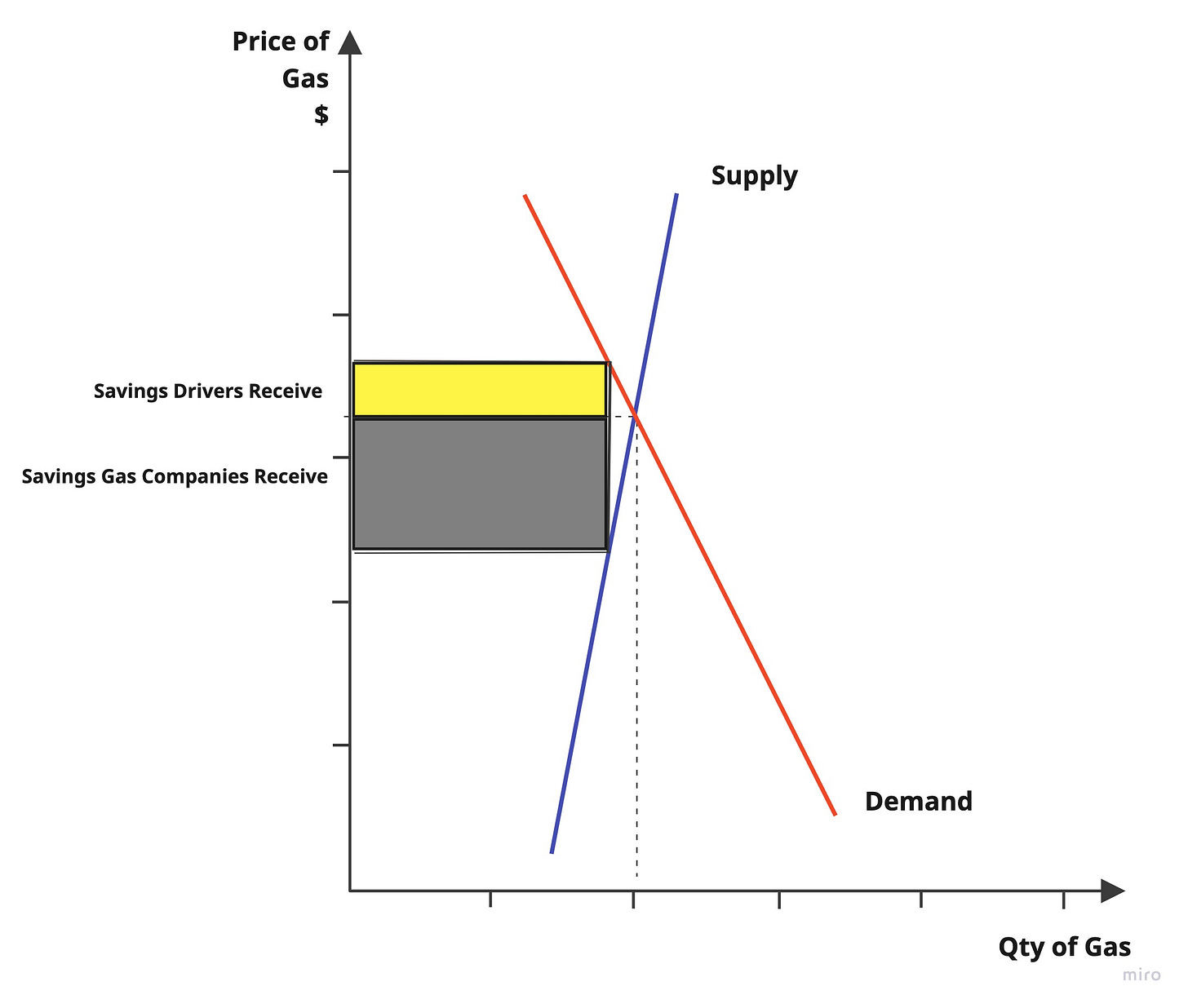Sorry, But Gas Tax Holiday Would Do Little to Help With Pump Prices
President Biden has asked Congress to suspend the federal gas tax. Unfortunately, that would do little to alleviate pump prices.

In an attempt to counter the astonishingly high price of gasoline, President Biden has asked Congress to suspend the federal gas tax ($0.18) for three months.
Congress is unlikely to fulfill President Biden’s wish of a gas tax holiday, and Republicans are not the only ones who oppose this effort. Sen. Tom Carper (D-DE) commended Biden for wanting to lower gas prices, but called this particular policy proposal “shortsighted and inefficient.” Rep. Peter DeFazio (D-OR), Chairman of the House Transportation & Infrastructure Committee urged fellow Congress members to “see it for what it is” and called it “a short-sighted proposal” that would “not provide meaningful relief at the pump.”
Only a couple months ago, Speaker Nancy Pelosi (D-CA) asserted that a suspension of the federal gas tax “is very showbiz” and that its benefits “not necessarily landing in the pocket of the consumer.”
However, many consumers are perplexed on why many politicians and economists oppose the tax holiday. Sure, gas has hiked $2.00 since last year, but an 18-cent reduction is still something and should be welcome, no?
Well, not necessarily. Keep in mind that simply suspending an 18-cent tax won’t decrease the price for consumers by 18 cents. The savings of the tax is split between consumers and producers. The incidence of the tax determines how much will be pocketed by the oil companies and how much will be passed on to consumers through price decreases.

Inflation has caused a steady price increase in gas for the past year, but what skyrocketed prices were the sanctions on Russian-imported oil and gas that caused a massive reduction in the U.S. supply. Furthermore, the Biden administration has been unwilling to increase domestic production of gas to supplement the Russian imports, and has even halted the nationwide offshore drilling program indefinitely this month, even further restricting the U.S. supply.
All that to say, the supply of gas right now is rather inelastic, meaning oil companies are generally unable to increase their supply to meet demand. In order to prevent a gas shortage, prices are increased so that demand meets supply.
If the federal gas tax were to be suspended, the portion of savings the gas industry would pass down to the consumer would be a small fraction. Some may call this “corporate greed” but lowering the price of gas would increase the demand for gas, and cause a gas shortage. For this reason, suspending the federal gas tax would just shift that revenue over to oil companies.
Some may contend that the price of gas does not really affect the demand for gas. They point out that just because it’s a few bucks more doesn’t mean they won’t refill their tank, so demand is inelastic.
This may be true, but it seems that demand is at least marginally elastic. Prices rising at such an extraordinary rate has surely decreased some gas usage, whether that is using public transportation to commute or using alternative means of travel, such as biking or scootering. And in the summer, demand may become even more elastic as fewer people are required to travel for work or school.
Suspending the gas tax would also have minor inflationary effects as well. Marc Goldwein of the Committee for Responsible Federal Budget (CRFB) predicts that a suspension would reduce inflation in the near term by less than 0.1%, but would ultimately increase inflation after three months by more than 0.1%.
A federal gas tax holiday, even for three months, would also be costly. According to a White House report, the three-month suspension would cost the Highway Trust Fund—which the federal gas tax funds—roughly $10 billion.
A $10 billion price tag—a majority of which would go to oil companies—with some inflationary consequences is certainly a steep price tag. Especially considering that former Obama administration economist Jason Furman predicts a gas tax holiday would shave off six cents—at most. Sure, six cents off a gallon is still something, but there are plenty of viable alternatives that are more cost-efficient and would produce more benefits to consumers.

Take, for example, the Jones Act. JP Morgan recently stated that waiving the outdated protectionist shipping law would save East Coast consumers ten cents per gallon. Unlike a gas tax holiday, this price decrease does not have an expiration date of three months, would not be inflationary, and would not cost anything.
The Jones Act requires that any product shipped to the U.S. domestically be on ships constructed in the U.S and manned by an all-U.S. crew. This limits available shipping options to the U.S, making it harder to ship goods, such as gas, to U.S. ports. This places the U.S. at a competitive disadvantage against Latin American buyers, who do not have any such requirements making it easier and cheaper to ship to those locations.
Waiving the Jones Act for gas would also be more feasible than suspending the federal gas tax. Any tax suspension would need to be passed through Congress, which is why Biden’s gas relief solution is simply asking Congress to do something. While the Jones Act was passed through Congress and would need Congressional approval to be repealed, the President has the authority to waive the regulations for certain products, like gas.
Perhaps most notably, a Jones Act waiver would respond to the core problem responsible for inflation at the pump: restrained supply. While a gas tax holiday would simply shift government revenue back to the market and would have a negligible effect on the supply of gas, waiving the Jones Act would actually increase the supply of gas to the U.S. by making shipping routes cheaper and more accessible.




